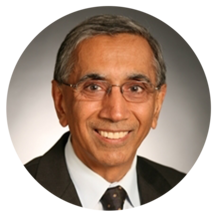About this Presentation
Caesar is a medium-sized information technology (IT) company based in The Netherlands. From 1995 when Caesar was founded until 2001 Caesar grew steadily. Following an operational excellence strategy Caesar was able to deliver high quality IT specialists for very competitive prices. This strategy however proved to be recession-prone. The recession of 2001 – 2002 hit the company hard. Looking for a way to build a stronger competitive edge Caesar embarked on a journey with Eli Goldratt in 2004. The ambitious target was to build an IT company that would deliver all its projects on time (with the right scope and for a fixed fee). At that moment (and many years before and after it) project performance of IT companies was poor: typically 60-70% of IT projects fail to deliver the right scope on time and within budget. In 2004 Caesar did not outperform the market average. In the first six months of 2005 we implemented a new way of working. The core improvement implemented in this period was critical chain project management (CCPM). Although this proved a necessary component it was not sufficient to reach the goal. A major cause for project failure – at least in IT projects – is uncontrolled scope creep. Applying critical chain allows for some scope creep to be absorbed but we found that an extra injection was necessary: a scope management process that would minimize scope changes to only the most crucial. We developed PDSM – problem driven scope management – using the TOC thinking processes (TP) at the initiation phase of each project to define the basis for the project scope. With a clear problem definition we found that we could effectively manage the project scope during the execution of the project. So much so that we can guarantee customers that we will solve their problem on time and for a fixed fee. The guarantee includes a penalty for late delivery. This unique approach was named Time Value. In the first months of operation this combination of CC and PDSM gave us very promising results: our DDP in 2005 was 80%. As we took on more projects and more complex projects we found a number of other process improvements (mainly from the lean / agile methodologies) were necessary to maintain a high DDP. Using the TP in our own organization to understand the problems and develop and implement solutions, we have been able to constantly improve our performance. In the last three years this has resulted in 95%+ due date performance on our IT projects.
What Will You Learn
To help you get the most value from this session, we’ve highlighted a few key points. These takeaways capture the main ideas and practical insights from the presentation, making it easier for you to review, reflect, and apply what you’ve learned.

Instructor(s)
Lars de Laat

Ms Alka Wadhwa
Alka Wadhwa is an experienced consultant and process improvement expert with over 24 years of expertise in the Theory of Constraints (TOC), Lean Six Sigma, and organizational performance optimization. She has successfully led projects in healthcare, financial services, and manufacturing, driving significant improvements such as a 67% boost in hospital operations and a 140% increase in outpatient visits.
Previously, Alka Wadhwa spent 17+ years at GE Global Research Center, where she led initiatives to enhance various GE businesses through advanced technologies, process redesign, and system optimization. Founder of Better Solutions Consulting, LLC, she specializes in using TOC, Six Sigma, and data analytics to streamline operations and build high-performance teams.
Her work has earned her multiple accolades, including the Empire State Award of Excellence in healthcare.

Dr Gary Wadhwa
Dr. Gary Wadhwa is a Board Certified Oral & Maxillofacial Surgeon with extensive experience in the field. He completed his Oral & Maxillofacial Surgery training at Montefiore Hospital, Albert Einstein College of Medicine in Bronx, NY, and has served as an Attending at prestigious institutions like St. Peters Hospitals, Ellis Hospital, and Beth Israel Hospital in NY. With a career spanning over two decades, he was the former CEO and President of a group specialty practice in NY from 1994 to 2015. Dr. Wadhwa holds an MBA from UT at Knoxville, TN, and has undergone additional training in System Dynamics at MIT, Health System Management at Harvard Business School, and Entrepreneurship and healthcare innovations at Columbia Business School. Committed to expanding access to Oral & Maxillofacial Surgery care, he is currently engaged in a meaningful project to provide healthcare services to underserved populations in inner city and rural areas through non-profit Community Health Centers.
